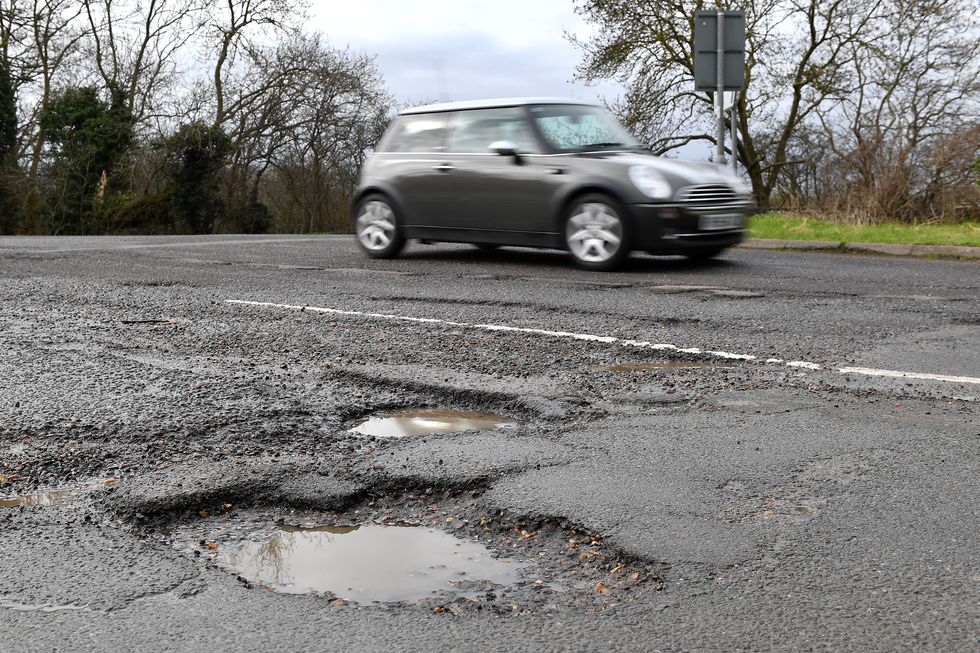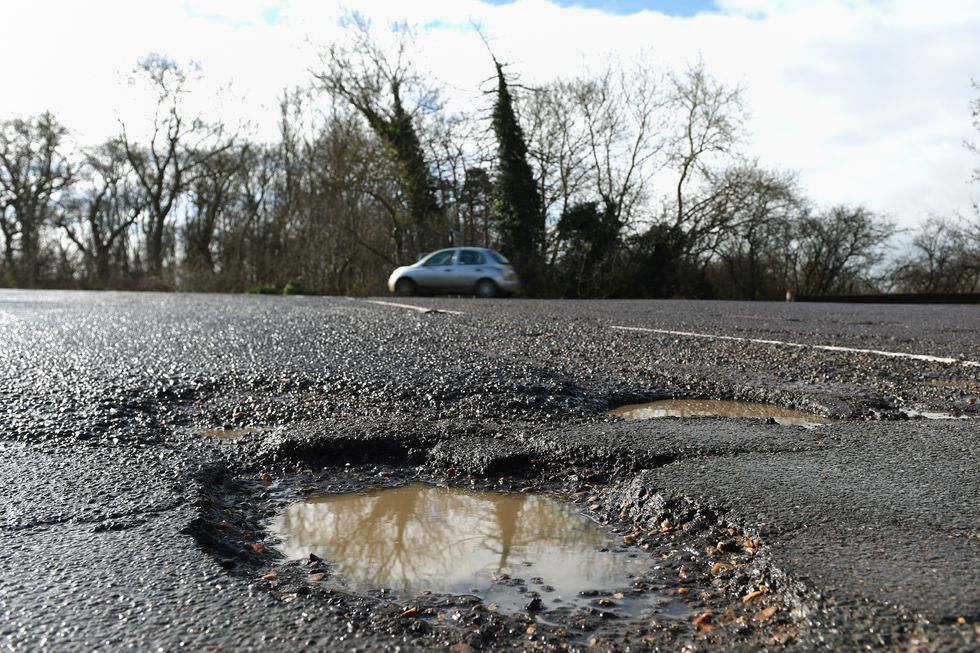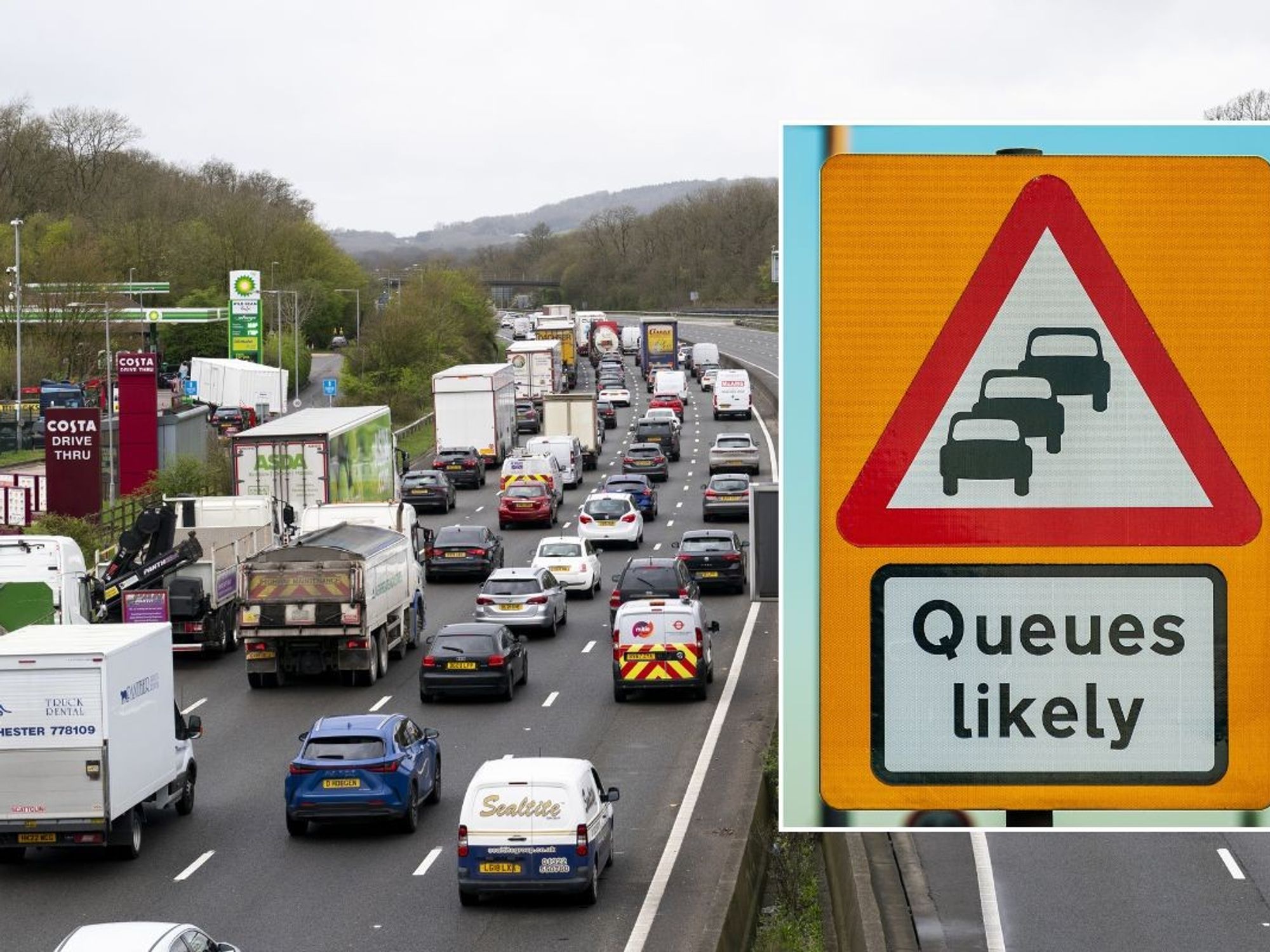WATCH: Mr Pothole says he has 'no faith' in any politician to fix the UK's roads
GB NEWS
Labour said it wanted to give taxpayers the most 'cost-efficient way' to improve roads
Don't Miss
Most Read
Trending on GB News
Pothole compensation claims submitted to local authorities across Britain have more than doubled in just one year, new data from the RAC has found.
Claims surged from 8,327 in 2022 to a staggering 20,432 in 2023, according to research obtained from 18 councils responsible for Britain's longest road networks.
Surrey County Council witnessed the most dramatic increase, with claims jumping from 734 to 3,418. Hampshire followed closely behind, seeing claims rise from 750 to 2,654 over the same period.
The Freedom of Information data from councils covering nearly 92,200 miles of local roads, highlight the growing crisis facing British motorists.
Do you have a story you'd like to share? Get in touch by emailingmotoring@gbnews.uk

Labour pledged an additional £500million in the Budget to fill in potholes
PADespite the surge in claims, councils are proving reluctant to compensate drivers for pothole damage. Data shows that 17 councils paid out just 15 per cent of the 20,432 claims submitted in 2023.
The chances of successful compensation are particularly slim, with 13 councils refusing more than three-quarters of claims received.
Five councils stood out for rejecting nine in 10 claims, with Gloucestershire County Council refusing 98 per cent of its 829 claims.
Essex County Council turned down 95 per cent of its 2,560 claims, while Kent and Cornwall Councils both rejected 92 per cent of their claims. Only Shropshire Council showed a more generous approach, paying 68 per cent of its 546 claims in 2023.
The trend appears to be worsening, with the average number of refused claims rising from 76 per cent to 81 per cent between 2021 and 2023.
The majority of rejected claims were thrown out because councils claimed they had no prior knowledge of the potholes.
Of nine councils that provided detailed refusal data, 74 per cent of rejections - some 6,028 claims - were refused under Section 58 of the Highways Act 1980, which allows councils to reject claims if they were unaware of the pothole's existence.
Gloucestershire and Hertfordshire councils took this approach to the extreme, citing a lack of prior knowledge for every single rejected claim.
RAC head of policy Simon Williams described the findings as "a stark reminder that the ongoing poor condition of many of the UK's local roads is burning holes in the budgets of both local authorities and drivers".
He noted that some councils appeared to prioritise paying legal fees over settling claims, with £166,000 being spend to defend compensation claims.
He said: "The cost in time and money of defending claims appears to far outweigh the expense of reimbursing drivers for the damage done to their vehicle in the first place.
"Even if a driver successfully pursued compensation, the average sum paid out of £260 is often well below the cost to fix a pothole-damaged car, for anything more serious than a punctured tyre.
LATEST DEVELOPMENTS:
- SUV owners issued serious threat as climate protesters target 'monster' vehicles - 'Time to hold them to account'
- Drivers with larger petrol and diesel cars could face 'Land Rover tax' and new parking restrictions
- Elderly motorists face strong calls to have 'mature driving assessments' and eyesight checks
 Labour pledged to repair one million more potholes per year in its manifesto PA
Labour pledged to repair one million more potholes per year in its manifesto PA"When it comes to the true extent of the problem, we may only be seeing the tip of the iceberg, as almost the same number of councils refused to tell us why they threw out pothole claims compared to those that did."
Williams welcomed the £500m funding councils will receive to improve road networks as announced in the Budget, emphasising it should be used for preventative maintenance.
A Department for Transport spokesperson said: "For too long, this country has suffered from a pothole plague, which is why this Government is taking action by investing a further £500million for 2025/26. For next year, this goes beyond our manifesto commitment to support local leaders to fix up to a million more potholes.
"We want to achieve this in the most cost-efficient way for the taxpayer by providing local authorities with multi-year funding settlements, enabling them to better maintain their roads and avoid potholes in the first place."








